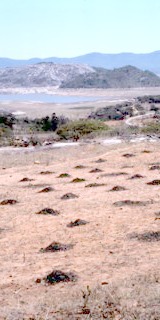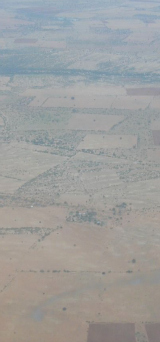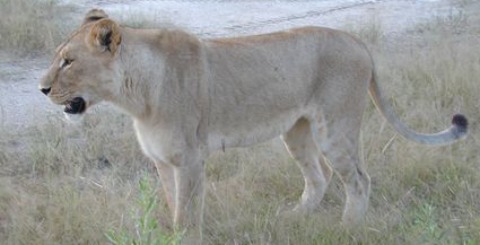Home | About CCW | Contact Us | Climate change Meaning | Causes | Solutions | Emissions | Carbon trading
Climate change Africa
Climate change Africa is the last thing that the continent needs.
It is already a huge challenge to maintain the food supply, water, healthcare, education and economic opportunity for one billion people speaking over 1,000 languages and spread across 54 countries.
Add some climate change effects that include droughts, extreme weather and even shifts in seasonality and it only makes development more difficult.
Exponential population growth over the past 40 years has made economic activity and food production across all of Africa the number one challenge throughout the continent.
Already there are 158,000,000 people in Nigeria alone.
These numbers make the volume of food production required far greater than in any previous time in history.
It is remarkable, and a recognition of human tenacity and ingenuity, that the famines that so graphically hit Ethiopia and Somalia in the 1980’s and again in the 1990s are not more widespread.
But this is the worry for climate change across Africa — that any change to growing conditions will tip the balance toward food scarcity and hunger.
And predictions for climate change in Africa are not looking good.
our sister information site Ask Alloporus has more on the environmental issue of food insecurity
What are the climate change Africa predictions?
Here are some of the IPCC assessment report predictions for Africa that will result from climate change:
- Already dry areas in the north and south of the continent will become up to 2 degrees warmer
- The northern Sahara will see up to 20% decline in rainfall
- Winter rain will decline by 20% in southern Africa
- Up to 30% decline in runoff in many parts of the continent
- By 2020, 75 to 250 million people will be exposed to increased water stress
- Some countries will see rain-fed agricultural production decrease by 50%
- Throughout the continent agricultural production will be compromised with risks to food security and increasing the cases of malnutrition
- Adaptation to sea level rise could cost 5-10% of GDP in low-lying coastal areas
- By 2080 there will be an increase of 5-8% of arid and semi-arid land
Overall these effects might seem localised affecting some countries more than others.
Southern Africa, northern Sahara and some coastal areas will be most affected and there will be a general drying affecting water supplies and habitat more widely. There is the potential for destabilising whole regions.
And the consequence
What the predictions do not consider is how climate change effects will influence the way people grow food.
Most of the agricultural production in Africa is small-scale, often subsistence, farming. People rely heavily on traditional techniques and knowledge. For a very long time people have learnt and honed the details of...
- what to plant
- how to plant
- when to plant and in what sequence
- crop combinations and rotations
- balance with the seasons, especially rainfall
Many traditional systems answer these questions in specific ways, using triggers of seasonal rainfall for when and what to plant.
It is one thing to put pressure on a traditional system with more mouths to feed. It is another to have the capacity reduced by changes to climate that shifts the timing of growing seasons and especially alter the length of rainy seasons.
The FAO, UNDP and the World Bank have many sustainability programmes focused on Africa, a commitment that seemed essential before climate change.
These programmes need to work now for the overall consequences of climate change Africa is to increase the risk of famine.
climate change wisdom › meaning › climate change Africa
Recent Articles
-
Reducing emissions while looking for solutions...
Nov 01, 15 04:46 PM
I've seen a lot of post's online for ideas on reducing emissions. The one suggestion I have not seen, is the most obvious. There should be a government -
Climate change evidence
Mar 24, 15 06:22 AM
Real climate change evidence has to demonstrate a change in climate. An extra sunny day or a severe storm or a flood is not enough. -
The climate change effect
Feb 19, 15 03:08 AM
What will be the climate change effect? There isn't one, there are many. Perhaps too many for us to understand.




New! Comments
Have your say about what you just read! Leave me a comment in the box below.